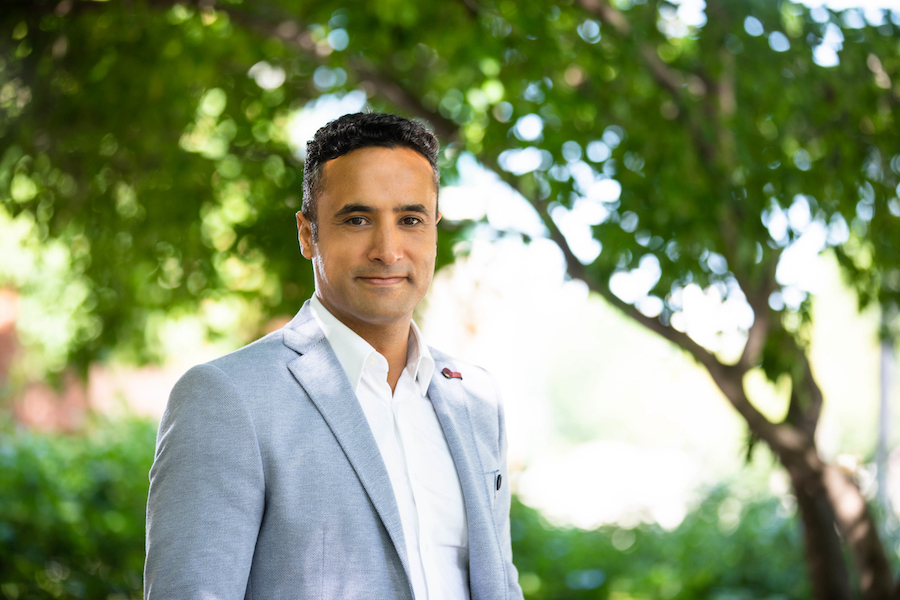
Many retailers are looking to rebound in sales this holiday season, but supply chain issues continue to be a concern.
Supply Chain & Operations Assistant Professor Necati Ertekin of the Carlson School of Management shares how retailers are navigating these challenges to meet consumer demand.
Q: What is the biggest issue facing the retail supply chain this holiday season?
Assistant Professor Necati Ertekin: Following the pandemic, consumer demand returned to normal faster than most firms anticipated whereas retailers are still receiving backlog orders requested months ago. As a result, many companies have ended up with excess inventory. In order to make space for the holiday products, we’re seeing giant retailers–including Target and Walmart–employ new strategies such as offering deep discounts for their excess inventory. I believe we will see other firms in the near future following a similar strategy to liquidate their on-hand inventory in order to open space for the holiday items.
Q: Is there a downside for these companies holding liquidation sales for excess inventory?
Ertekin: One concern I can see with this approach is demand displacement. Because these promotional events are now being offered very close to Black Friday, they may motivate consumers to start their holiday shopping earlier than before. Considering the high inflation rates, such behavior can be even more pronounced if consumers believe that they may not find a similarly good deal for another product later in the holiday season. Subsequently, when the holiday season products arrive later this year, the demand for those products might be smaller than what retailers forecast. This in turn will likely lead to another potential excess inventory and more aggressive post-holiday promotional sales than what we observed in the past. The next few months will show us how all these dynamics will work together.
Q: The holiday and post-holiday shopping seasons tend to be busy times for gift returns. How does this affect the retail supply chain?
Ertekin: The rising cost of returned products has been a substantial burden for retailers. The pandemic only exacerbated this cost as customers make more online purchases than before and return costs have traditionally been higher for online purchases than for in-store purchases. To mitigate some challenges with returns, two different practices will likely become more popular.
First, large online retailers such as Amazon have started an omnichannel initiative of “buy-online, return-in-store,” also called BORIS. This policy aims to provide customers the option to return an item to a store in-person (rather than going through the hassle of returning online) while at the same time consolidating returns in a central location (vs. receiving those returns from each customer through direct shipping). Second, to help offset the rising shipping and warehousing rates for returned items, several retailers offer no-return refunds, in which retailers simply ask customers to keep or donate the unwanted items while still providing the refund. This practice is useful, particularly for low-dollar items as the cost of reverse logistics for these items often exceeds their merchandise value.
Q: How might firms encourage return visits to their stores throughout the holiday shopping season?
Ertekin: Driving customers into stores is always desirable for retailers as more store traffic often leads to more in-store sales due to the impulse purchases customers make during their store visits. Retailers that offer BORIS can increase store traffic by incentivizing customers to use this return option. For instance, customers who return their Amazon purchase at a Kohl's store may earn a coupon redeemable at the Kohl's store. In addition to incentivizing the use of BORIS, retailers may also use a price match strategy to drive more traffic into their stores. Instead of offering deep discounts at once, retailers may gradually decrease prices throughout the holiday season while giving the customers the option of price match. Customers who bought items earlier in the season at a higher price may then be enticed to return to the store.
Q: What’s a growing concern that will affect retail supply chains?
Ertekin: The environmental impact of holiday season sales and returns will play an important role in the near future (if not this holiday season). Several industry reports indicate that returns from holiday season shopping create an enormous amount of landfill waste and produce substantial carbon dioxide. As these reports are publicly shared, customers become more environmentally conscious and expect retailers to offer more sustainable shopping and return experiences. Retailers that successfully respond to this consumer shift are likely to gain a competitive advantage. I expect in the near future, we will see retailers integrating environmentally friendly solutions into every single stage of the customer journey, from purchasing and shipping items to returning and reusing returns.
Necati Ertekin is an Assistant Professor in the Supply Chain and Operations Department at the Carlson School of Management, University of Minnesota. Prior to pursuing a Ph.D., he served in the Navy as an officer for eight years and resigned as Lieutenant. His primary research interests center on retail operations and operations/marketing interface with an emphasis on omnichannel retailing, store labor, and the behavioral aspects of consumer returns.
About the Carlson School of Management
Located on the University of Minnesota Twin Cities campus, the Carlson School of Management exemplifies a commitment to excellence through a focus on experiential learning and international education, and by maintaining strong ties with the Minneapolis/Saint Paul business community. Through its undergraduate and graduate programs, the Carlson School offers access to world-renowned faculty members and an alumni network of 55,000 people. Learn more at carlsonschool.umn.edu.
- Categories:
- Business and Management
- Retail





